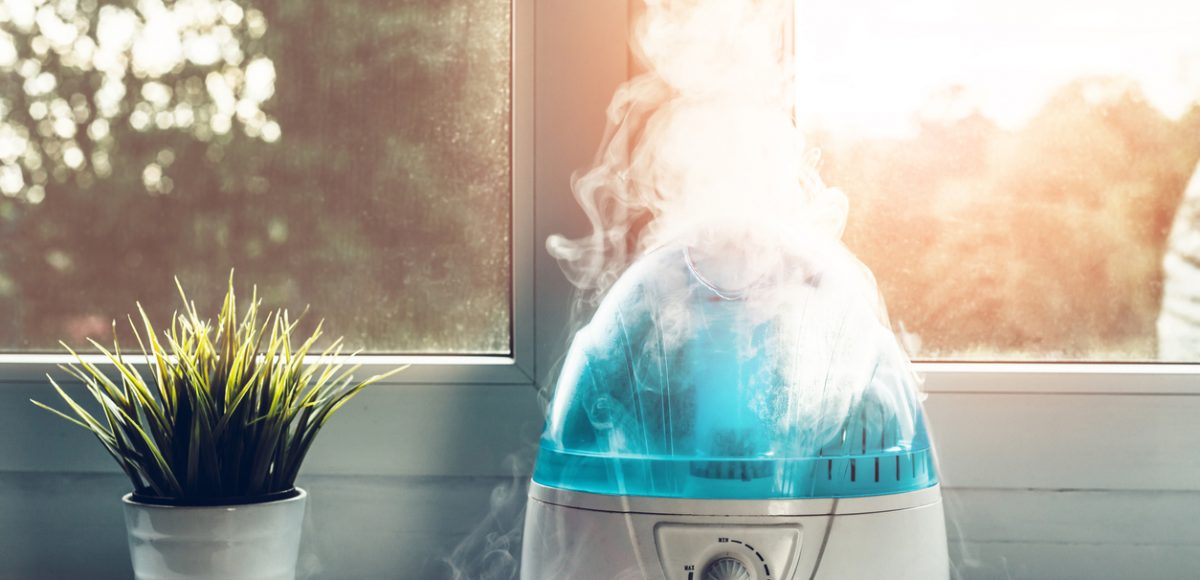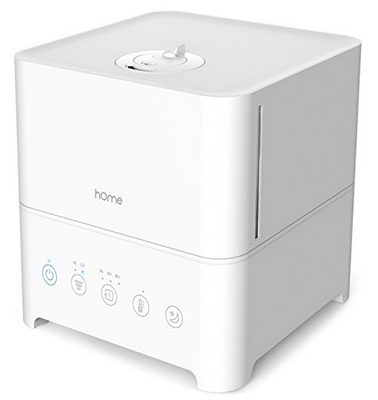
Dry winter air leeches moisture , leaving your skin as dry and cracked as a salt flat and your sinuses as parched as the Sahara in summer. Dry air also contributes to that jarring static shock that. But with the natural drop in humidity levels during winter, the dry, heated air inside can create an uncomfortable atmosphere.

Common complaints of dry air are allergy and asthma problems, sinus congestion, dry skin, sore throat and nose bleeds. That’s because cold air can’t hold as much moisture as warm air. Ideal indoor humidity during winter should hover around percent.
But dry winter air can cause your humidity to drop substantially, to levels of percent or less. That warm and toasty home feels good when it’s cold outside. Drinking more water helps a little, but the best way to prevent dry air from wreaking havoc on our bodies is to put some moisture in the air. Using a cool mist humidifier in your home during the winter can keep everyone’s spirit up and prevent those nasty static electricity shocks that plague us during this time of year.

Humidifiers are great for keeping the air in your home healthy, but there are other things you can do to help add humidity when the air’s drying out your skin, furniture, and woodwork. A dry house is probably to blame. During the winter months, low humidity becomes an issue in many homes , leading to these problems and others, including nosebleeds, dry skin and increased susceptibility to colds and flus. These annoyances can increase in winter , when heating your home means moisture becomes even more scarce. In summer, high humidity will encourage mold growth and make various bugs happy.
That’s why your bedroom humidity levels should be around all year around. They could all be related to dry winter air. But, there is something we can do. Because winter air has low humidity, it can dry out your skin and mucous membranes, making your skin itchy, your throat scratchy and your nose sometimes bleed.
This dry air may also aggravate sinus troubles or asthma and cause discomfort if you have a cold or cough. Like an engine without proper oil lubrication, breathing in dry air can irritate your throat and trigger fits of coughing or even gagging, which in turn makes sleeping difficult. How to Increase Humidity. To boost the humidity in your bedroom during the winter , try using a humidifier while you sleep. Viruses and bacteria do not transmit as well in a humid air.
It is a way for your family to get rid of severe flu episodes this winter. A hydrated skin: the cold and very dry air dehydrates the skin. This can lead to problems such as premature wrinkles or tire fragile or flaky skin. In the winter , the air gets very dry and col and forced- air heat can make the air inside our homes uncomfortably dry.
That kind of desert-like air can be hard on our bodies, drying skin and mucus membranes, making us more susceptible to colds and other respiratory ailments. Winter weather can dry out your skin and nasal passages, which could make you more susceptible to catching a cold. And coughing, sneezing, and dealing with a stuffy nose don’t mix well with sleep. Even if you have the immune system of a champ and never get sick, the dry air may lead to a dry, itchy, irritated throat, which can make it harder to fall asleep.
Low humidity can cause dehydrated skin. When your skin doesn’t have enough moisture, it becomes itchy and irritates easily. It can appear flaky, scaly and lead to issues such as eczema or dandruff. The skin on your lips can also become dehydrated without enough moisture. This forces the dry air from the furnace to blow through the wet towel and make the room more.
Cold air holds less moisture and indoor heating makes air extra dry. Sealing your home against drafts and air leaks is really counterproductive and a further cause for stale and germy air. There is little circulation in a home that is totally sealed and heated. Let your wet clothes dry in your rooWet clothes slowly evaporate the moisture they hold while drying.
You can hang them in your room to dry overnight and have a humid room with dry clothes to wear next morning. Houseplants are useful!
No comments:
Post a Comment
Note: Only a member of this blog may post a comment.